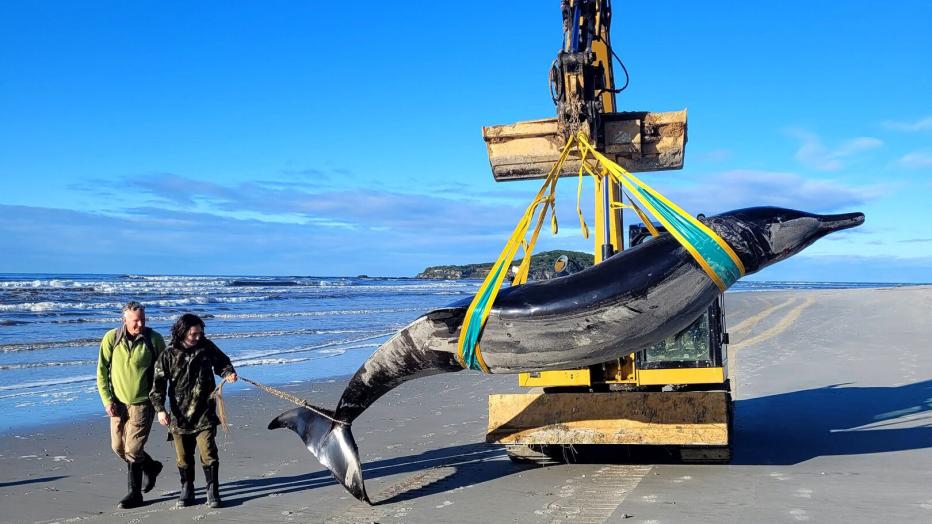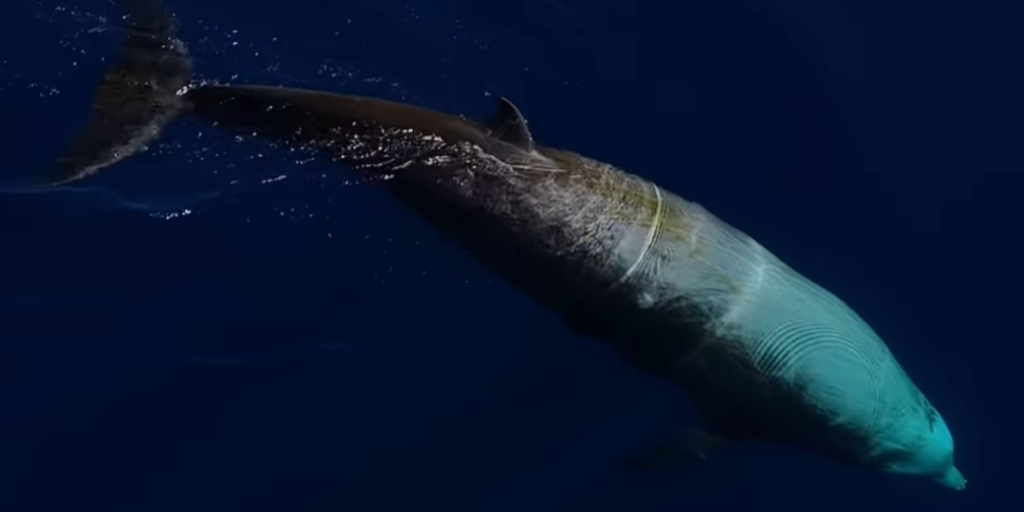A rare specimen has been found on a New Zealand beach.
Others are reading now
On July 4, near the city of Dunedin on New Zealand’s South Island, beachgoers made a shocking discovery as a whale had washed ashore.
With a length of five meters (or approximately 16.4 feet), the whale was believed to be a Bahamonde beaked whale.
This made the discovery particularly interesting, as this species is one of the rarest and least understood large mammals we have on Earth, with only a handful of specimens known to science.
“Bahamonde’s beaked whales are one of the least known large mammal species of modern times,” said Gebe Davies, DOC operations manager.
Also read
“From a scientific and animal welfare perspective, this is a huge deal.”
The discovery provides a unique opportunity for scientists to study and understand more about this elusive species.

Preservation and Culture
Genetic samples from the whale have been sent for analysis. The whale’s carcass is currently stored in a cold facility to preserve it for further research.
The Department of Conservation (DOC) stated that they will work with the Maori, New Zealand’s indigenous people, to ensure the animal is treated with respect.
For the Maori, whales hold significant cultural importance. They see a direct connection between themselves and these marine mammals, considering them their ancestors.
In April, Maori leaders, along with other indigenous islanders in the South Pacific, declared whales to be legal persons.
Background on the Bahamonde Beaked Whale
The scientific name of the Bahamonde beaked whale is Mesoplodon traversii.
First identified from jaw parts and teeth in 1874, there have been very few subsequent finds.
In 2010, two complete specimens — a mother and her calf — were discovered on New Zealand’s North Island but died shortly after washing ashore.
According to Kurier, these whales have never been observed alive in their natural habitat.


